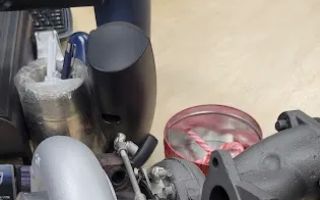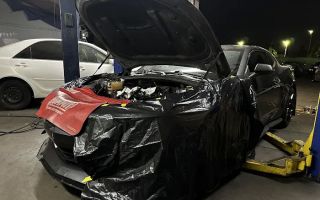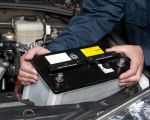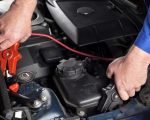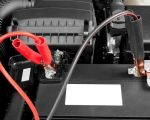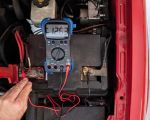How Can I Test if My Battery is Holding a Charge?
- Introduction
- Why Battery Health is Important
- Signs Your Battery Is Not Holding a Charge
- How to Test Your Battery
- Common Methods for Testing Battery Health
- What to Do if Your Battery is Failing
- Real-Life Examples: Battery Issues and Solutions
- When to Call a Towing Service
- Conclusion
Your car battery is essential for the proper functioning of your vehicle. It provides the power necessary to start the engine and run various electrical systems, such as the headlights, radio, and air conditioning. But like all components of a vehicle, batteries degrade over time. A battery that fails to hold a charge can leave you stranded, so it’s important to know how to test your battery and identify potential problems before they worsen. This article will guide you on how to test if your battery is holding a charge and what steps you can take to keep your car running smoothly.
Why Battery Health is Important
Just like the engine, tires, and other key systems, your car battery plays a crucial role in maintaining the overall performance of your vehicle. A healthy battery ensures that your car starts reliably, your lights function properly, and your electronics stay powered. If your battery is failing or isn’t holding a charge, you may experience issues starting your car, flickering lights, or electrical failures.
Maintaining battery health is important not only to avoid inconvenience but also to protect your vehicle’s electrical system. A dying battery can affect other components of your car, such as the alternator, which is responsible for recharging the battery while the engine runs.
Signs Your Battery Is Not Holding a Charge
If your battery isn’t holding a charge, there are several warning signs that you may notice. Here are the most common symptoms:
- Dim or Flickering Lights: If your headlights or dashboard lights dim or flicker while driving, it could be a sign that the battery isn’t maintaining the required charge to power electrical components.
- Slow Engine Crank: If your car takes longer to start than usual or the engine turns over slowly, the battery may not be supplying enough power to start the engine properly.
- Check Engine Light: A battery-related issue could trigger the check engine light to appear. While this light can indicate many problems, it’s worth having your battery checked if you notice it alongside other signs of a failing battery.
- Corroded Battery Terminals: If you see white, ashy corrosion around the battery terminals, it could be a sign that the battery is discharging or malfunctioning.
- Old Battery: Car batteries typically last 3 to 5 years. If your battery is nearing the end of its lifespan, it may struggle to hold a charge.
How to Test Your Battery
Testing your battery is a simple process that can help determine if it’s holding a charge. Here are some methods to consider:
- Use a Multimeter: A multimeter can be used to measure the voltage of your car battery. To test, set the multimeter to DC voltage and connect the positive and negative probes to the respective battery terminals. A healthy, fully charged battery should read around 12.6 to 12.8 volts when the engine is off. If the reading is lower, it may indicate that your battery is not holding a charge.
- Check the Battery Voltage with the Engine Running: Start your car and use the multimeter again to check the voltage. If the reading is between 13.7 to 14.7 volts, it indicates that the alternator is charging the battery properly. If the voltage is low, the alternator might be failing.
- Load Testing: A load tester can simulate the amount of power your car’s electrical system draws. If your battery drops below 9.6 volts during the test, it may not be holding a charge properly.
Common Methods for Testing Battery Health
If you don’t have access to a multimeter or load tester, you can still check your battery’s health by using other methods:
- Visual Inspection: Sometimes, a simple visual inspection can reveal signs of a failing battery. Check for leaks, cracks, or swelling. These can all indicate that the battery is at the end of its life.
- Battery Test at an Auto Shop: Many auto shops offer free battery testing services. They will use specialized equipment to test your battery’s ability to hold a charge and assess its overall health.
- Professional Diagnostic Services: If you’re unsure about the results of your DIY tests or if your car continues to experience electrical issues, it’s best to have a professional diagnose the problem. A mechanic or auto technician can perform an in-depth test to identify issues with your battery or electrical system.
What to Do if Your Battery is Failing
If your battery is not holding a charge, there are a few steps you can take to resolve the issue:
- Recharge the Battery: If the battery’s charge is simply low, you can try recharging it using a battery charger. Make sure the charger is suitable for your battery type.
- Replace the Battery: If the battery is old, corroded, or has failed the tests, it’s time to replace it with a new one. Choose a high-quality battery that’s compatible with your vehicle to ensure reliable performance.
- Check the Alternator: If your battery keeps losing its charge despite being new or recharged, the problem may lie with the alternator. A malfunctioning alternator can prevent your battery from charging properly while the engine runs.
Real-Life Examples: Battery Issues and Solutions
In one instance, Alex was experiencing slow starts every morning. After using a multimeter to test his battery, he discovered that his voltage was reading much lower than it should have been. After having the battery tested at an auto shop, he was advised to replace it. The new battery solved the issue, and Alex didn’t have any more trouble starting his car.
Similarly, Jane had an issue where her car would start intermittently. Upon testing the battery, she found no issues with the charge. However, after a mechanic checked her alternator, they found that it was malfunctioning, causing her battery to drain. The alternator was replaced, and the battery started charging properly again.
When to Call a Towing Service
If you’ve tested your battery and found it to be completely dead, and if you’re unable to jump-start or replace the battery on your own, it might be time to call a towing service. A towing company can assist you by bringing your car to a local mechanic or auto repair shop where they can diagnose the issue and replace the battery if necessary.
Conclusion
Testing your car’s battery to see if it’s holding a charge is an essential part of vehicle maintenance. By performing simple tests, such as using a multimeter or taking your car to a professional, you can determine if your battery is on its way out. For those times when you need help with a dead battery, don’t hesitate to call a towing service. Visit Rescue & Towing to learn more about our services and how we can help you keep your vehicle running smoothly.







